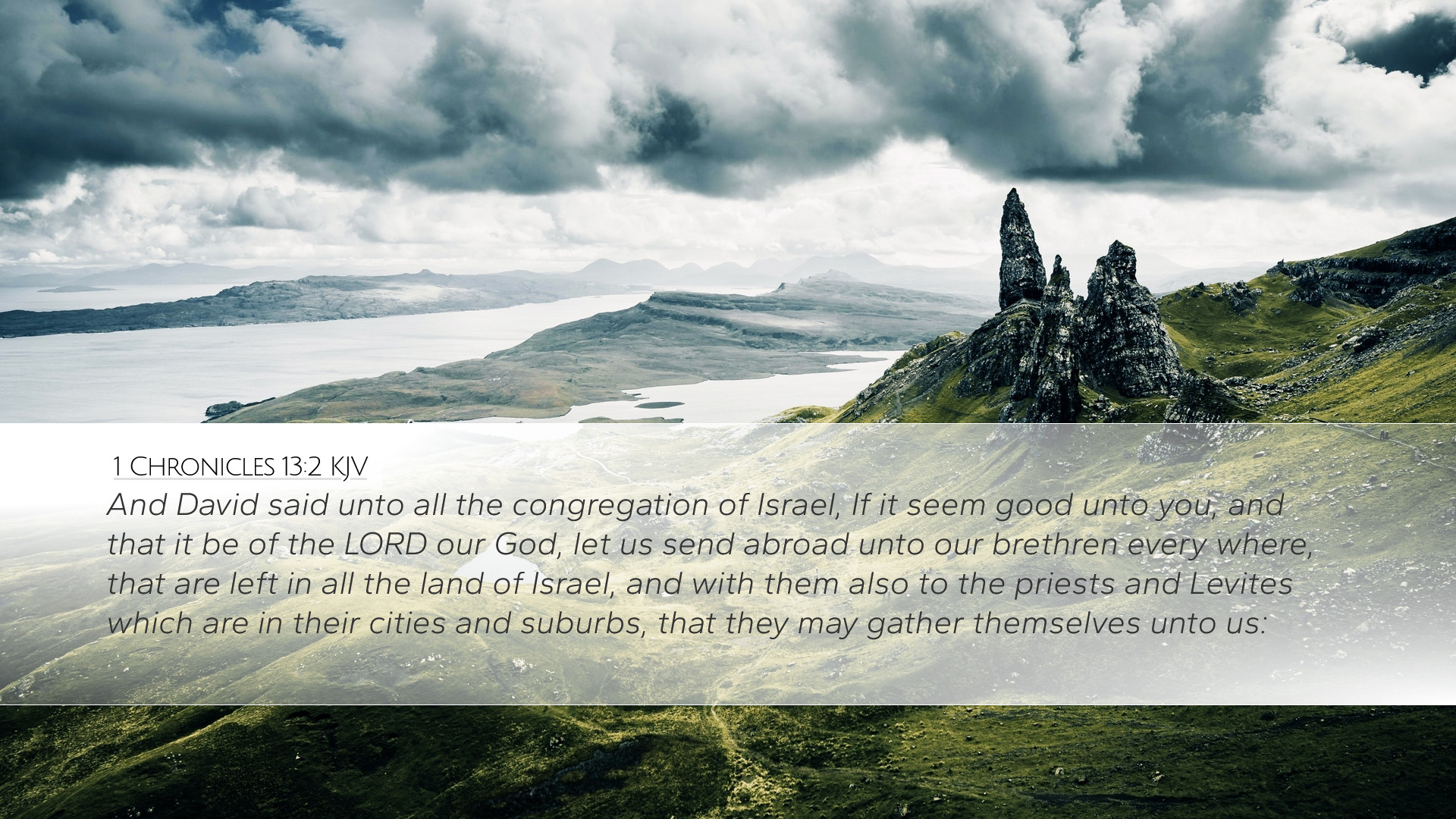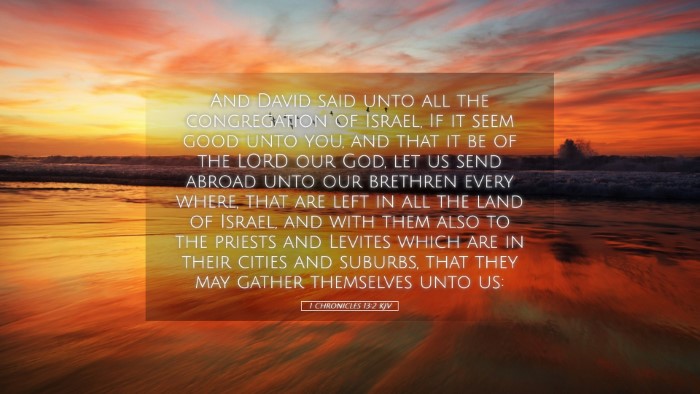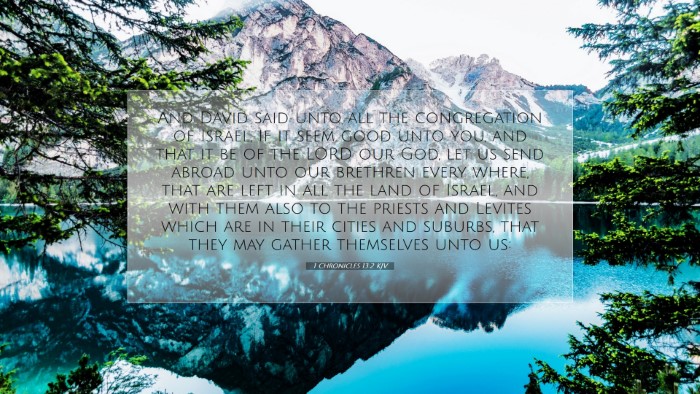Commentary on 1 Chronicles 13:2
Verse (1 Chronicles 13:2): "And David said unto all the congregation of Israel, If it seem good unto you, and that it be of the Lord our God, let us send abroad unto our brethren every where, that are left in all the land of Israel, and with them also to the priests and Levites which are in their cities and suburbs, that they may gather themselves unto us."
Contextual Overview
This verse marks a pivotal moment in Israel's history, one that underscores David's leadership and vision for bringing unity and worship back to the nation after the tumult of the Saul period. David seeks to gather the people, and in particular, the Levites, who are charged with the care of the Ark of the Covenant, thus reinstating the centrality of God in Israel’s society.
David’s Leadership
David as a Unifying Figure: David's call to the entire congregation reflects his role not only as a king but as a spiritual leader. His words "If it seem good unto you" show a desire for communal decision-making, emphasizing that leaders should engage the people of God in significant spiritual matters. Matthew Henry notes that David's leadership was marked by a reliance on divine guidance and a commitment to worship.
Seeking God’s Approval: The specific mention of "that it be of the Lord our God" indicates David’s acknowledgment that the success of such endeavors relies heavily on God's approval. This approach sets a precedent for leaders today, who must continually seek divine wisdom in their decisions.
Gathering of the People
Inclusivity of Worship: David’s directive to gather brethren from all the lands signifies a move towards inclusivity and unity in worship. Albert Barnes emphasizes the importance of gathering all sects and tribes to restore a sense of communal worship, which is foundational for a cohesive identity as God's people.
Role of Priests and Levites: The reference to summoning the priests and Levites is significant. These were not just the religious leaders but custodians of national worship and spirituality. Adam Clarke points out that David's intent was to give honor to their traditional roles and reestablish the order of worship that had been neglected.
Spiritual Implications
Worship Centrality: This verse serves as a reminder for contemporary believers about the importance of central worship. David’s actions underscore that worship should not be a solitary endeavor but rather a communal experience that unites believers in prayer, praise, and the pursuit of God's presence.
Divine Initiative: The phrase "if it seem good unto you, and that it be of the Lord" emphasizes the role of divine initiative in human planning. Barnes highlights that every project undertaken for God’s glory should begin with prayerful consideration and confirmation through the community of faith.
Lessons for Today
Call to Community: This passage beckons modern churches to establish avenues for congregational involvement in spiritual decisions. Leaders are encouraged to foster an atmosphere where the input of the congregation is valued as they pursue collective goals of worship and ministry.
Prayerful Consensus: Before launching into initiatives, it is essential for leaders to seek collective discernment through prayer and discussion, reminiscent of David’s approach. This ensures that the steps taken reflect not only the desires of the leadership but align with God's will for the community.
Revival of True Worship: Finally, this invitation from David serves as a clarion call for spiritual revival. It inspires the church to go beyond mere tradition, fostering a fresh pursuit of God's presence characterized by dedication through gathering, worship, and collective commitment to God.
Conclusion
1 Chronicles 13:2 encapsulates a moment of deep significance in Israel’s restoration under David’s reign. His leadership exemplifies a model for contemporary spiritual leaders who aspire to foster a genuinely collective worship experience rooted in God's guidance. Through understanding the historical and spiritual implications of this passage, modern-day applications in church life can be profoundly enlightening, encouraging a return to God as the central focus of communal worship.


